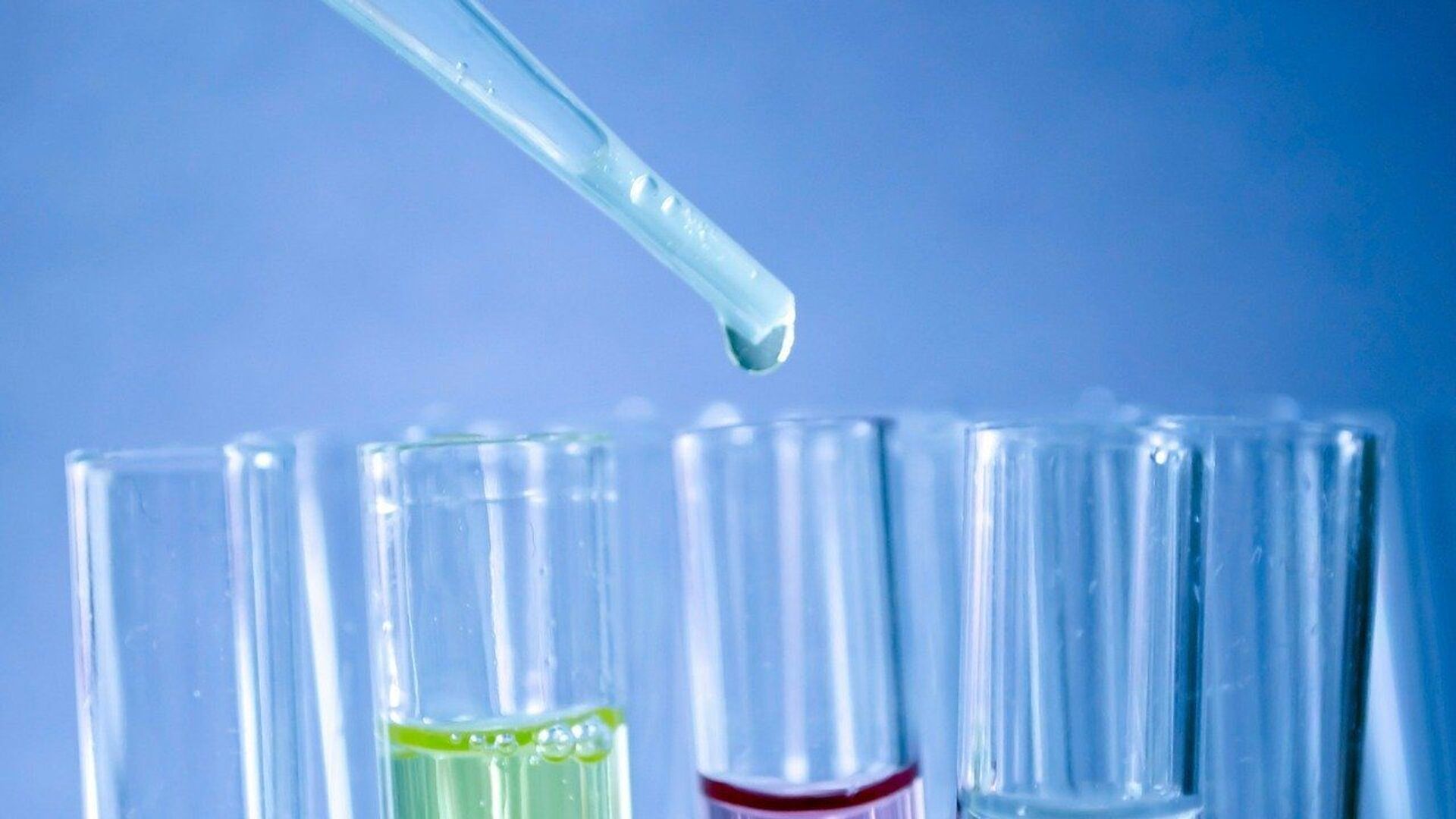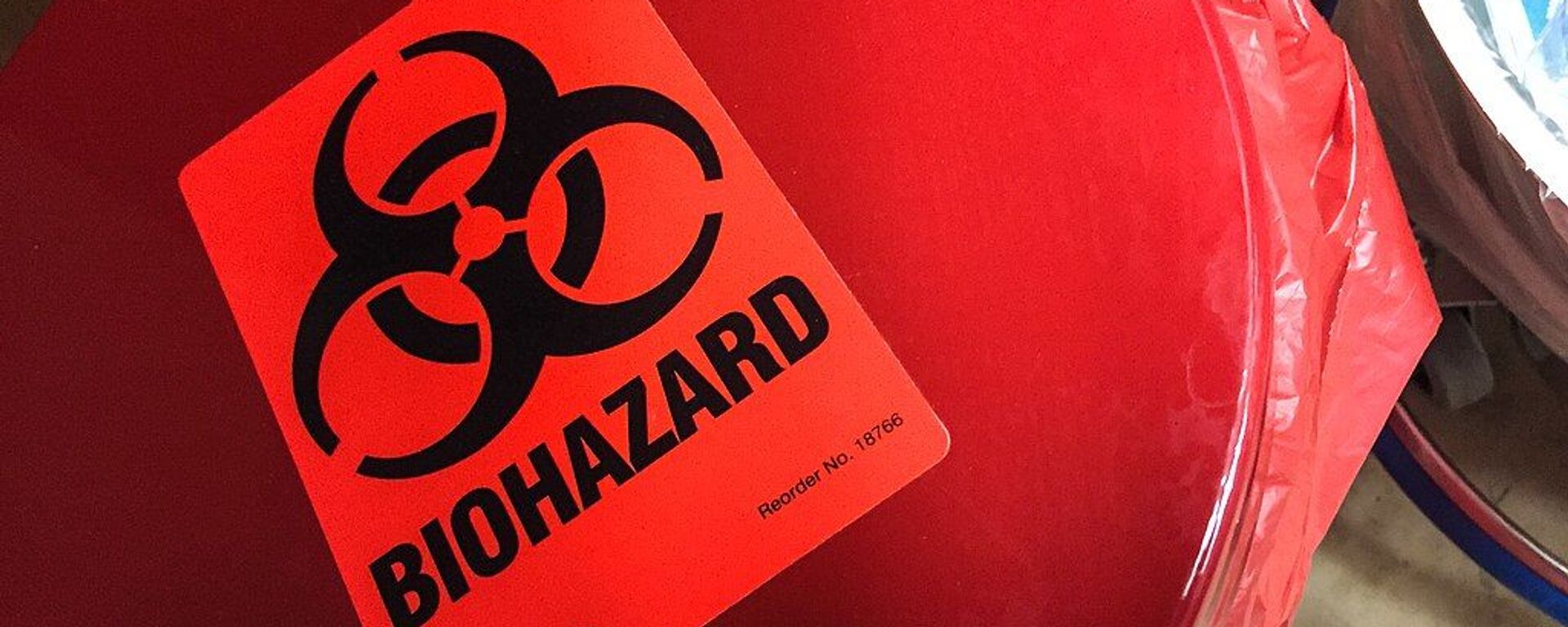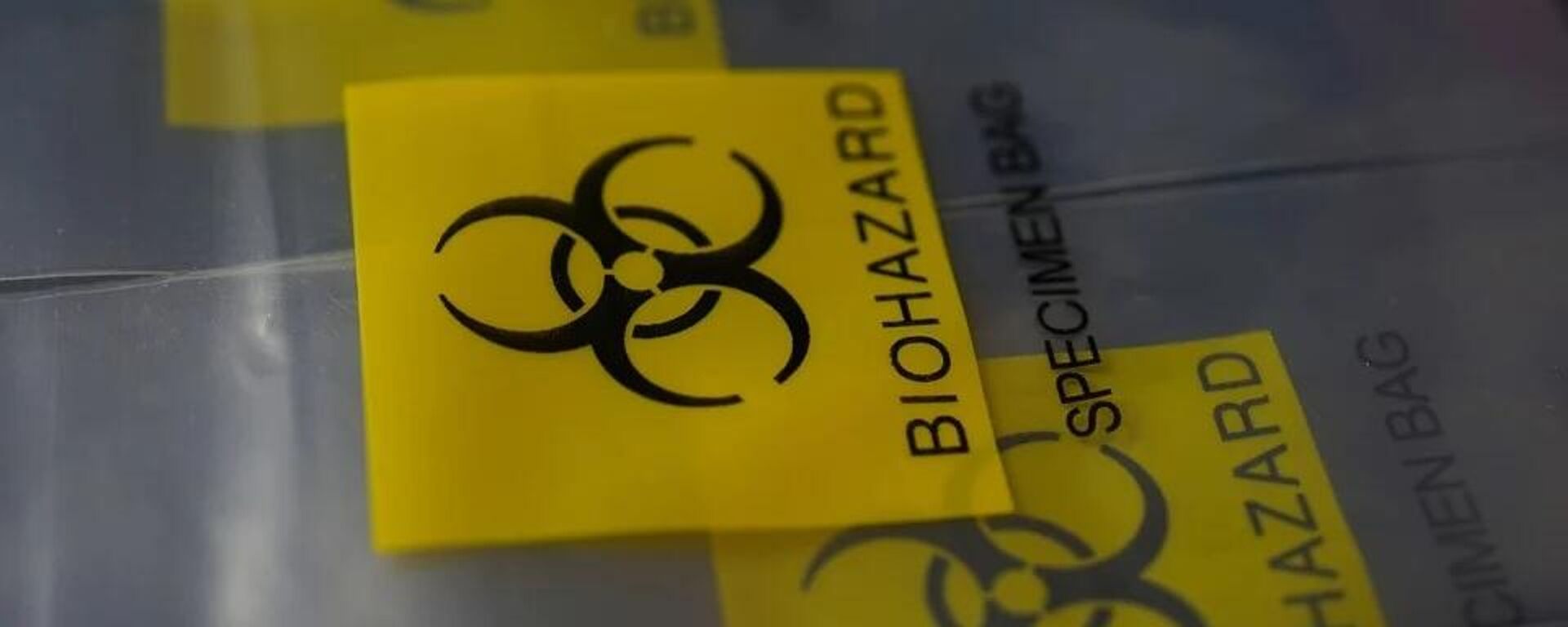https://sputnikglobe.com/20221019/us-may-be-compelled-to-answer-questions-on-biolabs-in-ukraine-this-time-at-unsc-1102094360.html
US May Be Compelled to Answer Questions on Biolabs in Ukraine, This Time at UNSC
US May Be Compelled to Answer Questions on Biolabs in Ukraine, This Time at UNSC
Sputnik International
The issue of US biolabs in Ukraine has once again received wide international publicity. On October 18, Belarus, Venezuela, Zimbabwe, China, Cuba, Nicaragua... 19.10.2022, Sputnik International
2022-10-19T18:24+0000
2022-10-19T18:24+0000
2022-10-19T20:57+0000
analysis
russia
us
china
biolab
bioweapon
biowarfare
ukraine
https://cdn1.img.sputnikglobe.com/img/107865/83/1078658330_0:64:1280:784_1920x0_80_0_0_c6dcff3803bdb2a7cbf4bd8e35b5e034.jpg
Article VI of the Biological Weapons Convention allows states-parties to lodge a complaint with the United Nations Security Council if they suspect a breach of treaty obligations by another state. In the event of such a development, the United States, as a state-party to the convention, would be obliged to cooperate in any investigation that may be initiated by the UNSC.Chinese experts interviewed by Sputnik believe that if the US has nothing to hide, it should provide a comprehensive explanation.In early March 2022, the Russian Ministry of Defense released information indicating that the United States was deploying an extensive biological research program in Ukraine. According to the Russian Defense Ministry, the US has spent more than $200 million on 46 biological laboratories in Ukraine that participated in the US military biological program.According to Lt. Gen. Igor Kirillov, chief of the Radiation, Chemical and Biological Protection Forces of the Russian Armed Forces, one of the priority tasks of the Ukrainian laboratories was to collect and send to the United States strains of pathogens of dangerous infectious diseases - cholera, anthrax, tularemia, and others. At the same time, the transportation of the pathogens was not controlled within the WHO, BWC, or other international institutions, and various biological agents and substances were tested on Ukrainian military personnel, indigent citizens, and patients of mental hospitals.According to Russia, the United States, under the guise of scientific activities and efforts to improve laboratory security systems, has been developing biological weapons in Ukraine.According to data obtained by the Russian MoD from Ukrainian officials, traces of US activities were partially destroyed on the day the Russian special military operation was launched, and many pathogens were removed from the country, indicating that the US intends to continue research outside the country. Indirectly, this was also indicated by the words of US Under Secretary of State Victoria Nuland. During a March 8 hearing of the US Senate Committee on Foreign Relations, she reported on the presence of biosafety research facilities in Ukraine. She expressed concern about the possibility that these biolaboratories and materials stored there might come under the control of the Russian Armed Forces.The US subsequently denied any connection between the laboratories and the Pentagon. However, according to Yang Mian, a professor at the Institute of International Relations, Communication University of China, the very existence of such laboratories raises questions:"Russia says that it has found many US biolaboratories in Ukraine near Russia's borders, some of which were researching infectious diseases. The US denied the accusations, saying that they were engaged in scientific research. Outside observers have every reason to ask: Why did the US set up so many laboratories around Russia? The US could have conducted research on these diseases internally as well as externally. Therefore, this situation is suspicious one way or another," he said.According to the Chinese Foreign Ministry, the US Department of Defense controls 336 biolaboratories in 30 countries around the world. In this regard, the issue of US-led biological research is of great concern to China, and this information provided by the Russian Ministry of Defense immediately resonated in the country."China has always demanded that the United States disclose the purpose and role of its own biological experiments. China's concern could greatly increase international attention to this issue, as well as increasing pressure on the United States. China is very concerned about the safety of human life. Regarding this issue, China believes that the United States has a responsibility and should give a transparent and open report to the world," Yang Mian explained.According to the expert, what is most suspicious is the ambiguous actions of the United States, and the attempts to “cover up the issue”:Lyu Chao, dean of the Institute of American and East Asian Studies at Liaoning University, holds a similar view:Both experts were cautious in their assessments and noted that the topic of US biolaboratories in Ukraine requires additional clarification, both in terms of US arguments and scientific expertise. Due to the politicization of the situation, it is unlikely that the United States will agree to provide more clarity and engage in truly open cooperation. Moreover, judging by the experience of the September BWC meeting, where half of the participating countries did not attend, not everyone has the courage to openly question Washington's position. Nevertheless, the current initiative of the eight countries is a case where the Western hegemon does not find itself in its usual role of prosecutor, but in the role of justifying itself. Perhaps the United States will have to answer questions that worry so many countries after all.
https://sputnikglobe.com/20220516/russia-plans-to-launch-un-investigation-into-violation-of-biological-weapons-convention-in-ukraine-1095537571.html
https://sputnikglobe.com/20220731/us-publisher-what-if-covid-outbreak-is-part-of-the-pentagons-biowarfare-plan-1097973485.html
russia
china
ukraine
Sputnik International
feedback@sputniknews.com
+74956456601
MIA „Rossiya Segodnya“
2022
Sputnik International
feedback@sputniknews.com
+74956456601
MIA „Rossiya Segodnya“
News
en_EN
Sputnik International
feedback@sputniknews.com
+74956456601
MIA „Rossiya Segodnya“
Sputnik International
feedback@sputniknews.com
+74956456601
MIA „Rossiya Segodnya“
russia, us, china, biolab, bioweapon, biowarfare, ukraine
russia, us, china, biolab, bioweapon, biowarfare, ukraine
US May Be Compelled to Answer Questions on Biolabs in Ukraine, This Time at UNSC
18:24 GMT 19.10.2022 (Updated: 20:57 GMT 19.10.2022) The issue of US biolabs in Ukraine has once again received wide international publicity. On October 18, Belarus, Venezuela, Zimbabwe, China, Cuba, Nicaragua, Syria, and Russia called for invoking Article VI of the Biological Weapons Convention (BWC) because of US military and biological activities in Ukraine.
Article VI of the Biological Weapons Convention allows states-parties to lodge a complaint with the United Nations Security Council if they suspect a breach of treaty obligations by another state. In the event of such a development, the United States, as a state-party to the convention, would be obliged to cooperate in any investigation that may be initiated by the UNSC.
Chinese experts interviewed by Sputnik believe that if the US has nothing to hide, it should provide a comprehensive explanation.
In early March 2022, the Russian Ministry of Defense released information indicating that the United States
was deploying an extensive biological research program in Ukraine. According to the Russian Defense Ministry, the US has spent more than $200 million on 46 biological laboratories in Ukraine that participated in the US military biological program.
According to Lt. Gen. Igor Kirillov, chief of the Radiation, Chemical and Biological Protection Forces of the Russian Armed Forces, one of the priority tasks of the Ukrainian laboratories was to collect and send to the United States strains of pathogens of
dangerous infectious diseases - cholera, anthrax, tularemia,
and others. At the same time, the transportation of the pathogens was not controlled within the WHO, BWC, or other international institutions, and various
biological agents and substances were tested on Ukrainian military personnel, indigent citizens, and patients of mental hospitals.
According to Russia, the United States, under the guise of scientific activities and efforts to improve laboratory security systems,
has been developing biological weapons in Ukraine.
According to data obtained by the Russian MoD from Ukrainian officials, traces of US activities were partially destroyed on the day the Russian special military operation was launched, and many pathogens were removed from the country, indicating that the US intends to continue research outside the country. Indirectly, this was also indicated by the words of US Under Secretary of State Victoria Nuland. During a March 8 hearing of the US Senate Committee on Foreign Relations, she reported on the presence of biosafety research facilities in Ukraine. She expressed concern about the possibility that these biolaboratories and materials stored there might come under the control of the Russian Armed Forces.
The
US subsequently denied any connection between the laboratories and the Pentagon. However, according to Yang Mian, a professor at the Institute of International Relations, Communication University of China, the very existence of such laboratories raises questions:
"Russia says that it has found many US biolaboratories in Ukraine near Russia's borders, some of which were researching infectious diseases. The US denied the accusations, saying that they were engaged in scientific research. Outside observers have every reason to ask: Why did the US
set up so many laboratories around Russia? The US could have conducted research on these diseases internally as well as externally. Therefore, this situation is suspicious one way or another," he said.
According to the Chinese Foreign Ministry, the US Department of Defense controls 336 biolaboratories in 30 countries around the world. In this regard, the issue of US-led biological research is of great concern to China, and this information provided by the Russian Ministry of Defense immediately resonated in the country.
"
China has always demanded that the United States disclose the purpose and role of its own biological experiments. China's concern could greatly increase international attention to this issue, as well as increasing pressure on the United States. China is very concerned about the safety of human life. Regarding this issue, China believes that the United States has a responsibility and should give a transparent and open report to the world," Yang Mian explained.
According to the expert, what is most suspicious is the ambiguous actions of the United States, and the attempts to “cover up the issue”:
“Russia is demanding an investigation. Many countries are demanding it. It is imperative, the activities of the US should be investigated. But they are obstructing the investigation in every way possible. If the US is in the clear, then what is there to be afraid of? Many such studies have a dual purpose. The US says it was engaged in scientific research, but couldn't it have been used to create new kinds of weapons? The US should provide evidence and explanations.”
Lyu Chao, dean of the Institute of American and East Asian Studies at Liaoning University, holds a similar view:
"The disclosed information about American biolaboratories in Ukraine has alarmed the international community. Therefore, the US has to provide a clear explanation. Better yet, instead of making excuses, it should conduct an international investigation, including one under the auspices of the WHO. This would be even more convincing," Lyu Chao said.
Both experts were cautious in their assessments and noted that the topic of US biolaboratories in Ukraine requires additional clarification, both in terms of US arguments and scientific expertise. Due to the politicization of the situation, it is unlikely that the United States will agree to provide more clarity and engage in truly open cooperation. Moreover, judging by the experience of the September BWC meeting, where half of the participating countries did not attend, not everyone has the courage to openly question Washington's position. Nevertheless, the current initiative of the eight countries is a case where the Western hegemon does not find itself in its usual role of prosecutor, but in the role of justifying itself. Perhaps the United States will have to answer questions that worry so many countries after all.




